 Today we had the introductory meeting of our recently funded ‘British Academy Project on Evidence-Informed Policymaking in Nepal’, the project is coordinated by the University of Huddersfield by Prof. Padam Simkhada, who is also Visiting Professor in Bournemouth University’s (BU) Faculty of Health & Social Sciences. The co-investigator at BU is Dr. Pramod Regmi (Principal Academic in International Health), with other co-applicants based at the Keele University, Canterbury Christ Church University, the University of Sheffield, the University of Chester, the Nepal Health Research Council (NHRC), Kathmandu University and the research-based charity Green Tara Nepal.
Today we had the introductory meeting of our recently funded ‘British Academy Project on Evidence-Informed Policymaking in Nepal’, the project is coordinated by the University of Huddersfield by Prof. Padam Simkhada, who is also Visiting Professor in Bournemouth University’s (BU) Faculty of Health & Social Sciences. The co-investigator at BU is Dr. Pramod Regmi (Principal Academic in International Health), with other co-applicants based at the Keele University, Canterbury Christ Church University, the University of Sheffield, the University of Chester, the Nepal Health Research Council (NHRC), Kathmandu University and the research-based charity Green Tara Nepal.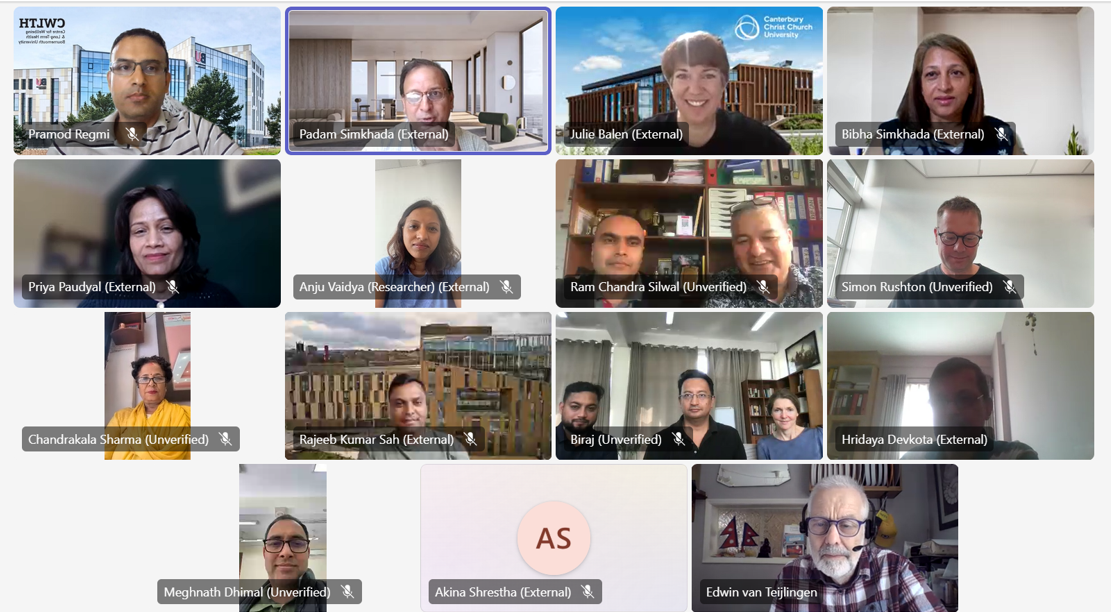
This one year grant is officially starting next month (1st June). The plans for this project were laid some time ago, and expressed in our 2022 paper ‘Nepal urgently needs a National Evidence Synthesis Centre‘ [1]. Our funded project will focus on the activities of: (1) formative research; (b) capacity building including evidence synthesis; (c) the establishment of a National Evidence Synthesis Centre; and (d) the evaluation of sustainability planning. The British Academy see this award also as providing a developmental opportunity, enabling award holders to build connections within the cohort and critically beyond that as well.

Prof. Edwin van Teijlingen
Centre for Midwifery & Women’s Health
Reference:
- Simkhada, P., Dhimal, M., van Teijlingen, E., Gyanwali, P. (2022) Nepal Urgently Needs a National Evidence Synthesis Centre, Journal of Nepal Health Research Council, 20 (3): i-ii.

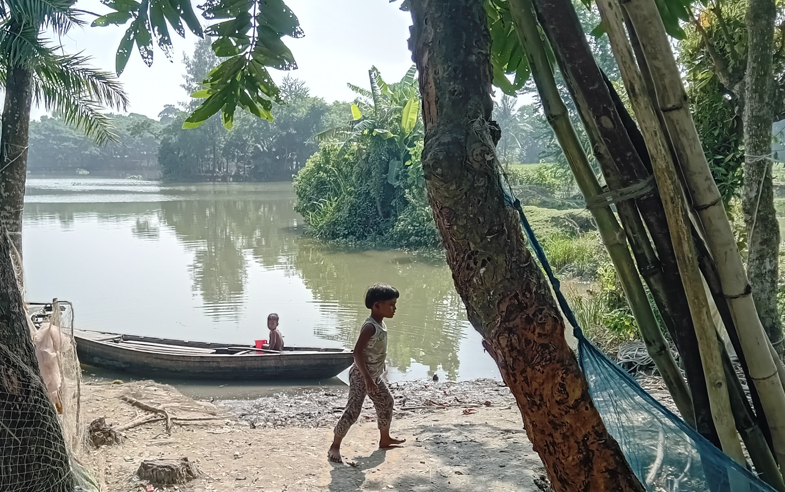


 Book now for RKEDF training in February 2025
Book now for RKEDF training in February 2025
 Funded by the
Funded by the 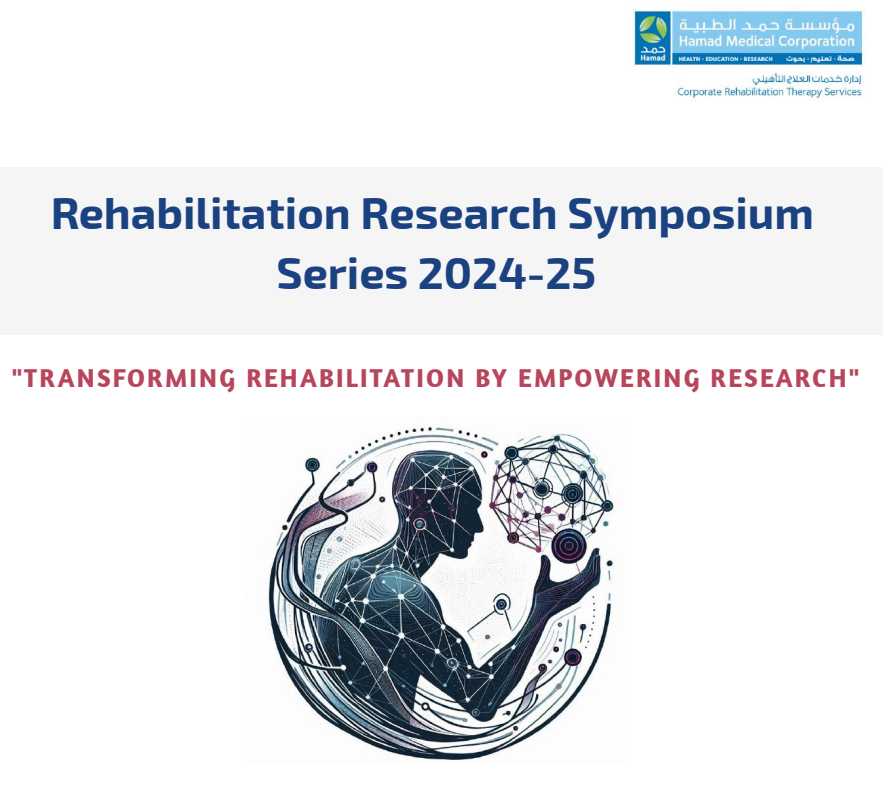

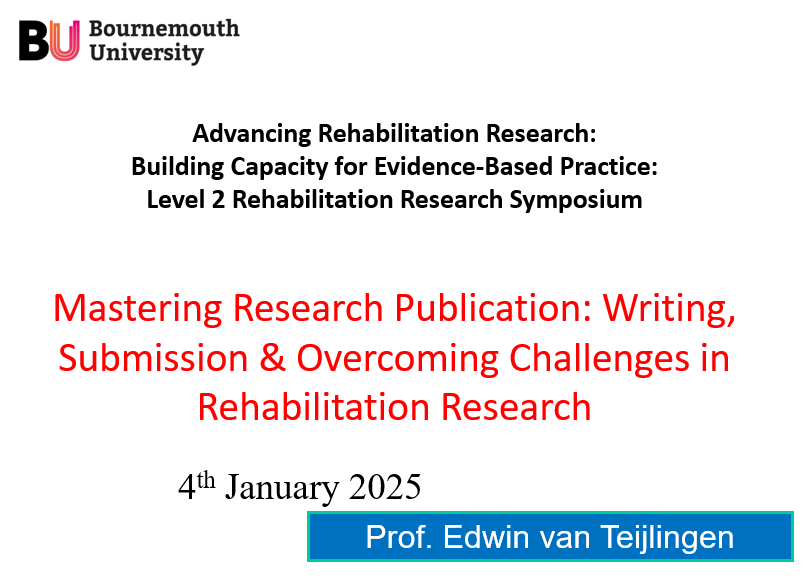
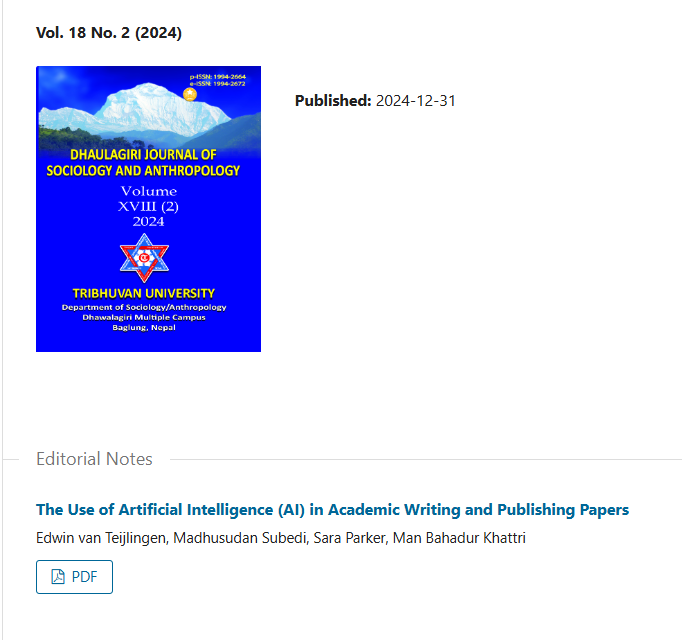

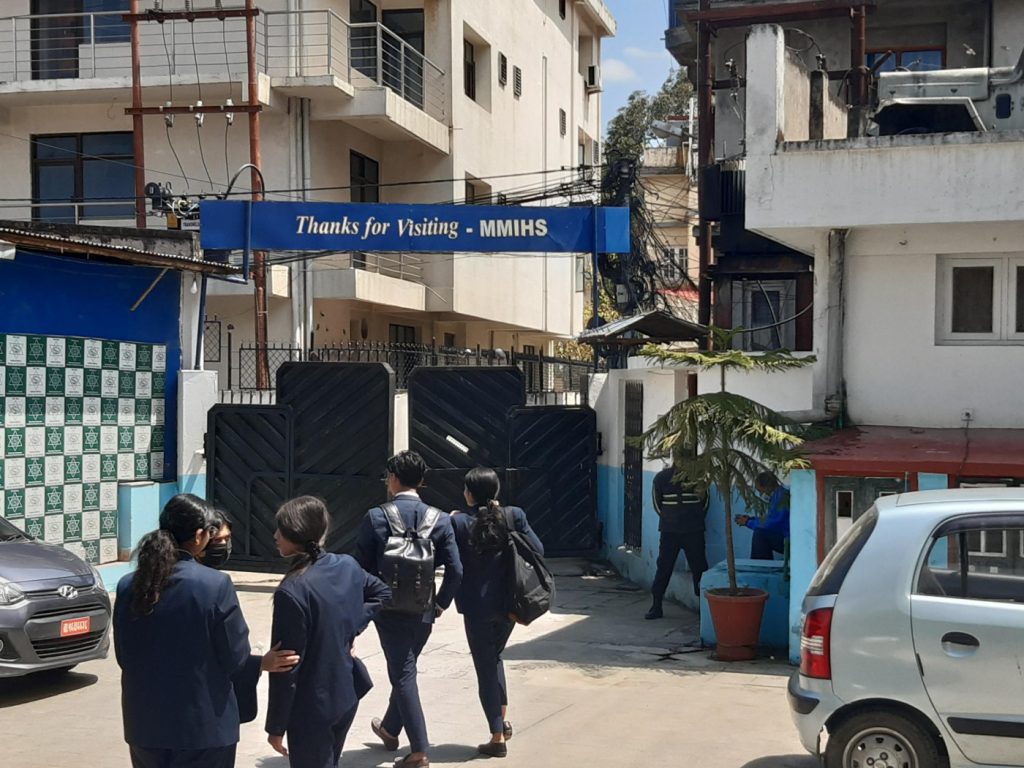
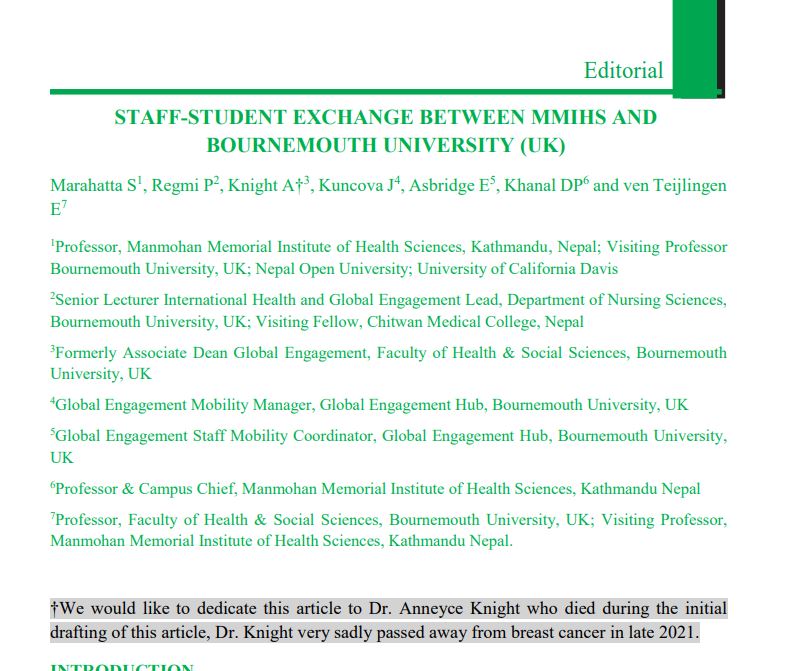

 Please help us in avoiding any waste of resources; make sure you can attend or cancel your booking prior to the session. For any further information, please contact
Please help us in avoiding any waste of resources; make sure you can attend or cancel your booking prior to the session. For any further information, please contact 

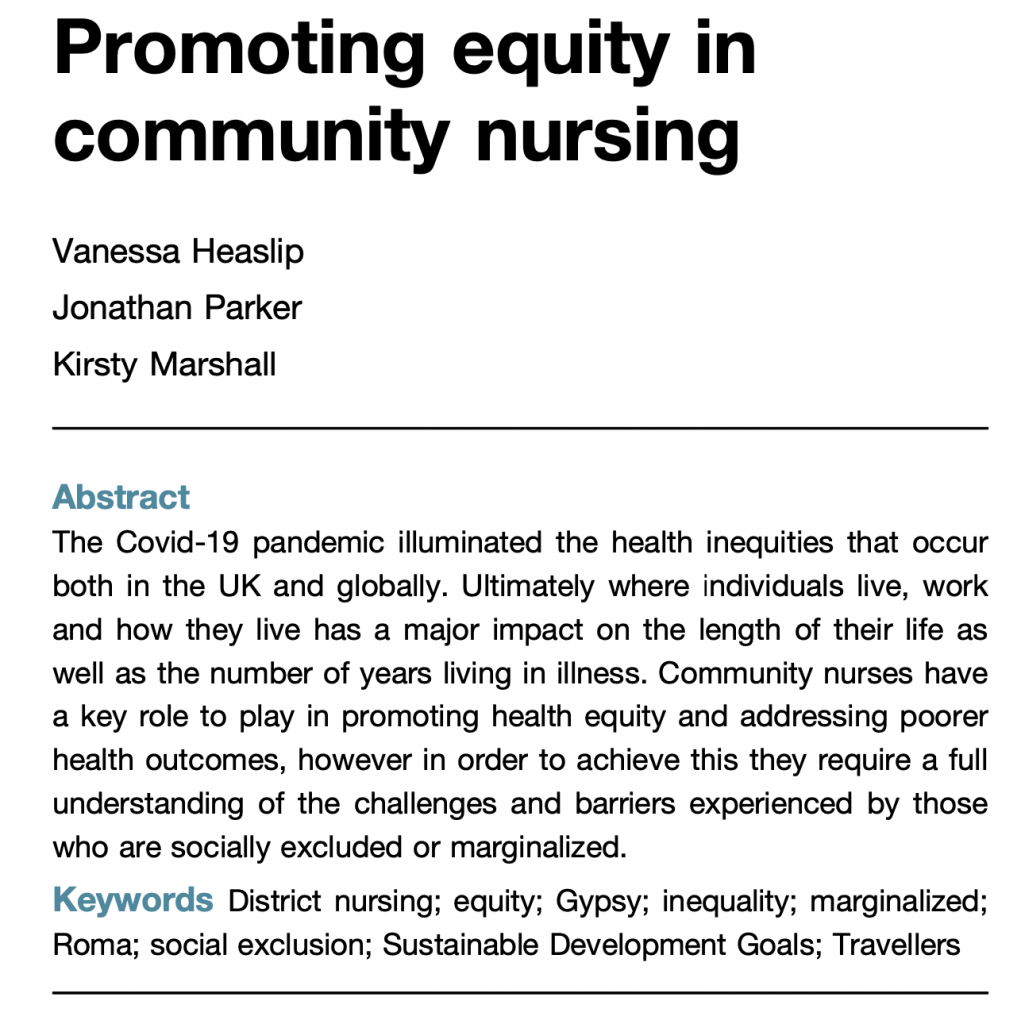
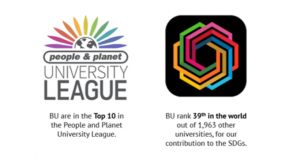
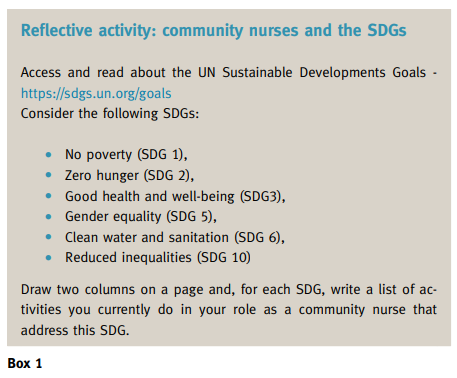











 BU attendance at third annual GCPHR meeting in June
BU attendance at third annual GCPHR meeting in June Interactive Tangible and Intangible Heritage Applications – BU student work featured in new book chapter
Interactive Tangible and Intangible Heritage Applications – BU student work featured in new book chapter Second NIHR MIHERC meeting in Bournemouth this week
Second NIHR MIHERC meeting in Bournemouth this week MSCA Postdoctoral Fellowships 2025 Call
MSCA Postdoctoral Fellowships 2025 Call ERC Advanced Grant 2025 Webinar
ERC Advanced Grant 2025 Webinar Horizon Europe Work Programme 2025 Published
Horizon Europe Work Programme 2025 Published Horizon Europe 2025 Work Programme pre-Published
Horizon Europe 2025 Work Programme pre-Published Update on UKRO services
Update on UKRO services European research project exploring use of ‘virtual twins’ to better manage metabolic associated fatty liver disease
European research project exploring use of ‘virtual twins’ to better manage metabolic associated fatty liver disease